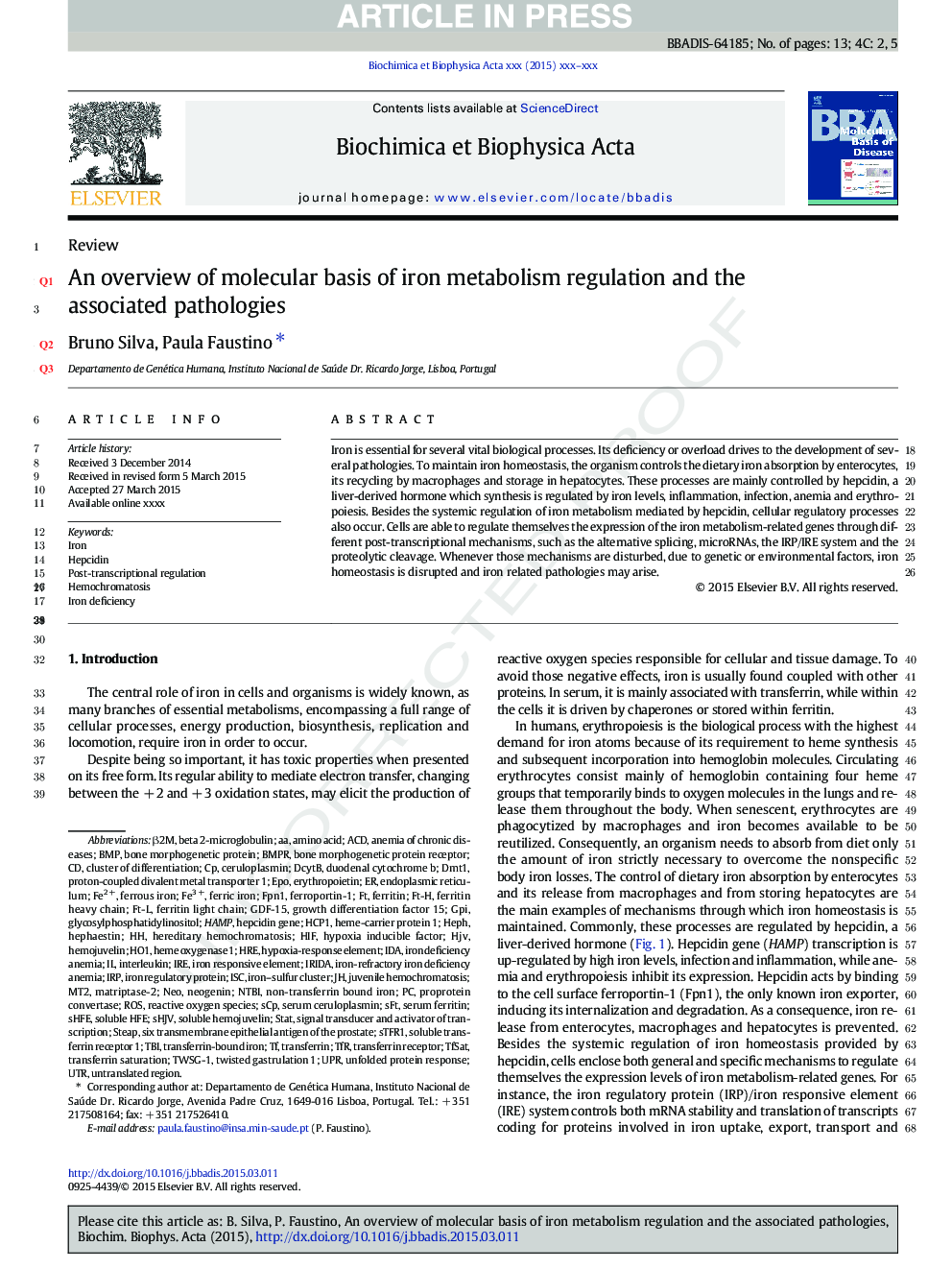| Article ID | Journal | Published Year | Pages | File Type |
|---|---|---|---|---|
| 8259777 | Biochimica et Biophysica Acta (BBA) - Molecular Basis of Disease | 2015 | 13 Pages |
Abstract
Iron is essential for several vital biological processes. Its deficiency or overload drives to the development of several pathologies. To maintain iron homeostasis, the organism controls the dietary iron absorption by enterocytes, its recycling by macrophages and storage in hepatocytes. These processes are mainly controlled by hepcidin, a liver-derived hormone which synthesis is regulated by iron levels, inflammation, infection, anemia and erythropoiesis. Besides the systemic regulation of iron metabolism mediated by hepcidin, cellular regulatory processes also occur. Cells are able to regulate themselves the expression of the iron metabolism-related genes through different post-transcriptional mechanisms, such as the alternative splicing, microRNAs, the IRP/IRE system and the proteolytic cleavage. Whenever those mechanisms are disturbed, due to genetic or environmental factors, iron homeostasis is disrupted and iron related pathologies may arise.
Keywords
β2MSTEAPUPRGPiBMPRhephaestinDMT1ACDHIFHRECeruloplasminIRPHEPHGDF-15SFTIDAHJVMT2IRENTBIIRIDADcytBduodenal cytochrome BFpn1TBINEOHO1TFRferroportin-1Hcp1TransferrinFe3 +EPOSCPISCROSSTATamino acidIronferrous ironFerric irontransferrin-bound ironerythropoietinTransferrin saturationinterleukinBeta 2-microglobuliniron–sulfur clustercluster of differentiationFerritin Heavy ChainFerritin Light ChainSerum ferritinendoplasmic reticulumGrowth differentiation factor 15Hypoxia-response elementiron responsive elementNon-transferrin bound ironHypoxia Inducible FactorFerritinMatriptase-2Signal transducer and activator of transcriptionBMPPost-transcriptional regulationUTR یا untranslated regions untranslated regionNeogeninIron deficiency anemiaHAMPheme oxygenase 1hemojuvelinHemochromatosishereditary hemochromatosisJuvenile hemochromatosisHepcidinUnfolded protein responseiron regulatory proteinBone morphogenetic proteinproprotein convertaseIron deficiencyglycosylphosphatidylinositolReactive oxygen speciestransferrin receptorbone morphogenetic protein receptor
Related Topics
Life Sciences
Biochemistry, Genetics and Molecular Biology
Ageing
Authors
Bruno Silva, Paula Faustino,
